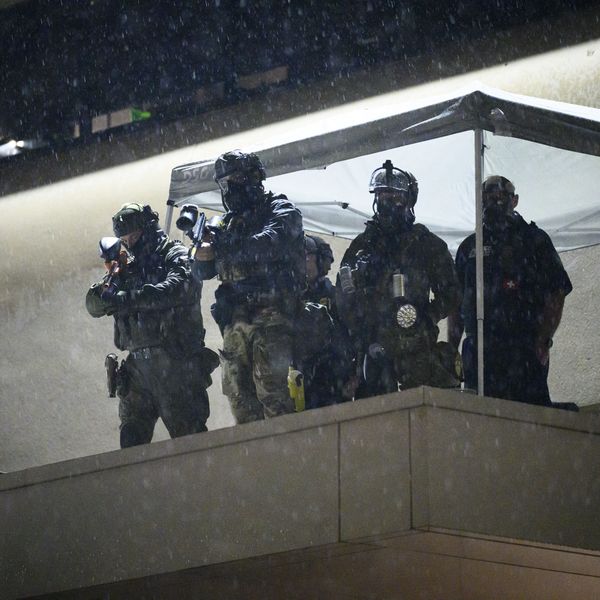US Defense Secretary Leon Panetta has said that his country will act "unilaterally" to confront what he said were Iranian threats to US interests in Iraq.
Speaking during his first visit to Baghdad since taking office on July 1, Panetta said on Monday that the US was "very concerned about Iran and the weapons they are providing to extremists here in Iraq".
He blamed weapon supplies from Iran for the increase in violence in June, the deadliest month for US troops in Iraq in two years.
"In June we lost a hell of a lot of Americans as a result of those attacks. And we cannot just simply stand back and allow this to continue to happen," he said.
Panetta said Washington's first effort would be to press the Iraqi government and military to go after the Shia groups he said were responsible for the attacks.
"Secondly, to do what we have to do unilaterally, to be able to go after those threats as well, and we're doing that," he said, referring to the right of US forces to defend themselves on Iraqi soil.
"And thirdly, to bring pressure on Iran to not engage in this kind of behavior.
"Because, very frankly, they need to know that our first responsibility is to protect those that are defending our country. And that is something we are going to do."
Underscoring US concerns over independent armed groups, three rockets landed in Baghdad's Green Zone after Panetta's arrival, Iraqi police told the AP news agency.
US troop uncertainty
Panetta is holding closed-door meetings with Iraqi officials during his visit and is expected to press them for a decision on whether they will allow US troops to remain in the country past an official withdrawal deadline at the end of the year.
The pact between the US and Iraq, called the Status of Forces Agreement, was approved by the Iraqis in December 2008.
It mandates that US forces withdraw completely by the end of 2011, but both the US and Iraqi are reportedly considering allowing the US to keeping some troops in the country.
However, the presence of US troops on Iraqi soil is widely unpopular, and no Iraqi politician has so far been willing to say publicly that soldiers should remain after 2011.
A spokesman for the bloc of politicians loyal to Shia cleric Muqtada al-Sadr has said, of the US, that any country involved in armed activity on Iraqi soil should "understand the consequences," Al Jazeera's Rawya Rageh reported from Baghdad.
The bloc had previously threatened to "unfreeze" the Mahdi Army armed group controlled by Sadr if US troops remained after 2011, but they have withdrawn that threat, Rageh said.

